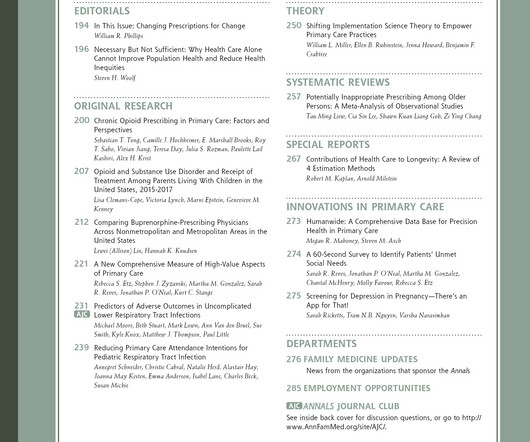Artificial Intelligence in Health Care
Integrated Care News by CFHA
MAY 1, 2025
Evidence‑informed care was literally at his fingertips. Reclaiming Time and Attention Primary care professionals may log more than eleven hours a day, over half of it in the electronic health record (Menchaca, 2025). Administrative overload fuels burnout and pushes us away from our patients. Anderson, E. E., & Henderson, R.












Let's personalize your content